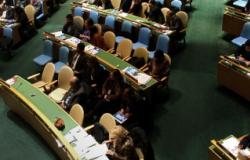
This paper attempts to analyze the voting behavior of Turkey in the UN General Assembly between 2002 and 2014 in comparison with those of the Brazil, Russia, India, China and South Africa (BRICS) countries by using selected reference groups of India, Brazil, South Africa (IBSA), EU, permanent members of the UN Security Council (P5) and the Western group of P5 (USA, UK, France) with the help of a two layered methodology. In doing so, this paper, with a two-layered quantitative and qualitative methodological model, empirically tests Turkey's voting alignments and cohesion scores in the UN General Assembly to provide a comparative perspective on the degree of foreign policy cohesion among Turkey and its BRICS peers by comparing the group and pair-wise ‘cohesion’ results. Finally, this paper will qualitatively analyze and discuss Turkey's exceptional voting behaviors and alignments with both the Western group of P5 and the BRICS to understand the nature of the international issues leading to convergences or divisions between Turkey and the BRICS and to demonstrate Turkey's in-between and dual foreign policy role in international affairs.